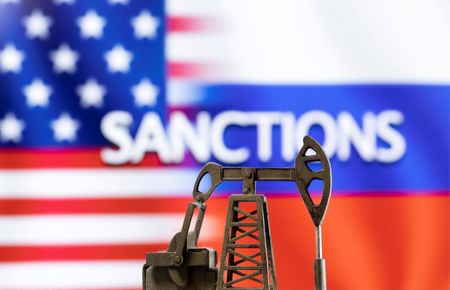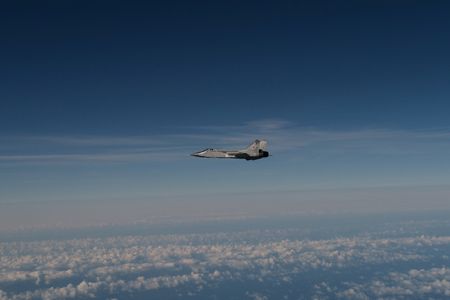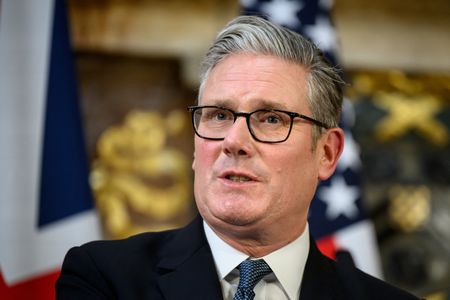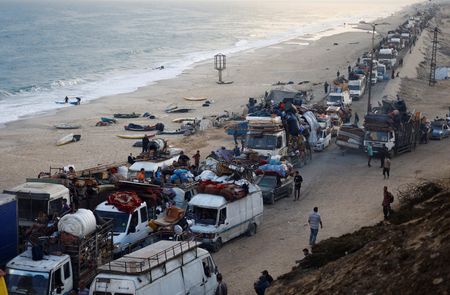MOSCOW (Reuters) -Russia’s central bank defended its tight monetary policy in a report on Wednesday, saying high rates had contributed to a slowdown in lending and fostered signs of disinflation, but pointed to low oil prices as a key risk for the Russian economy.
The central bank, battling stubbornly high inflation, has stood firm for months against growing pressure to ease borrowing costs, with critical companies cutting investment plans and the government bemoaning slowing economic growth.
Economy Minister Maxim Reshetnikov on Monday said the cooling economy was facing “hypothermia” risks as he urged the central bank to take slowing inflation into account when it next meets to set interest rates on June 6.
“Tight monetary policy is a temporary factor, necessary for a sustainable reduction in inflation,” the bank, which has held its key interest rate at 21% since October, said in a financial stability review.
Soaring military spending in the last two years has generated economic growth but fuelled inflation, causing overheating that the central bank has sought to cool with high rates. Russia’s growth domestic product growth slowed to 1.4% in the first quarter, from 4.5% a quarter earlier.
External conditions remain difficult, the bank said, pointing to risks from global market volatility, trade wars and the prospect of increased sanctions against Moscow.
Further drops in prices for Russia’s export goods, particularly oil, could become a “key risk” for Russia, the bank said. Price drops can reduce revenue for exporting companies and, in turn, the budget.
However, financial stability risks overall are limited due to Russia’s low debt and reserves accumulated during years of high oil prices, the bank said.
The bank said increased credit restructuring by large and medium-sized Russian companies at the end of March was a temporary trend, expressing confidence that a majority of firms was resilient to interest rate risk.
Nevertheless, banks must conduct regular stress tests of the stability of their corporate loan portfolios, the bank said.
(Reporting by Elena Fabrichnaya and Alexander Marrow;Editing by Bernadette Baum)











